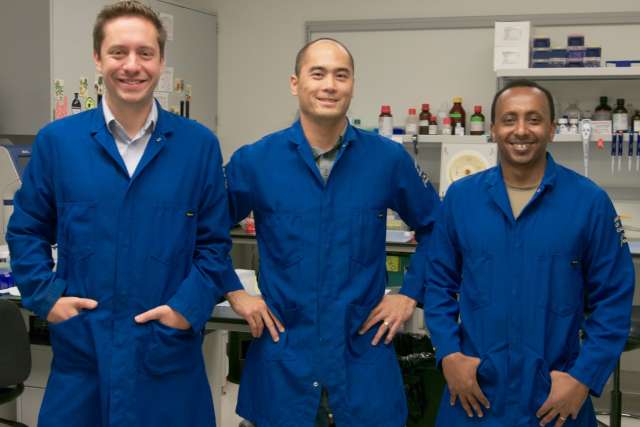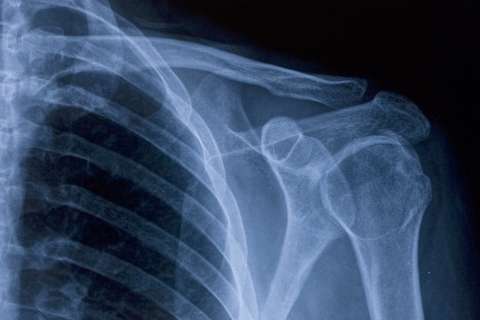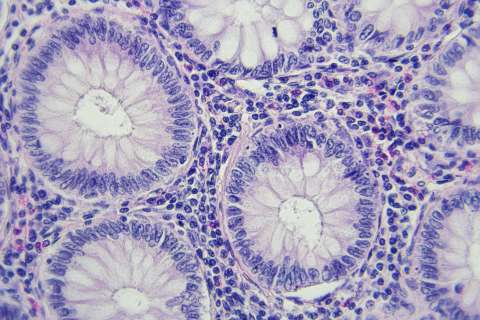UCLA Research Alert
FINDINGS
The metabolic enzyme purine nucleoside phosphorylase (PNP) protects against immunodeficiency and regulates innate immune signaling via previously unknown and independent mechanisms. The results inform the design of approaches to treat PNP insufficiency in humans as well as new therapeutic applications for clinical-stage PNP inhibitors. The study is published online ahead of print in the Journal of Clinical Investigation.
BACKGROUND
The enzyme PNP enables the breakdown and recycling of guanine nucleoside metabolites. PNP deficiency is a rare heritable disease characterized by immune abnormalities that manifest as both immunodeficiency and autoimmunity. In this study, the authors sought to understand the mechanisms contributing to these seemingly paradoxical outcomes.
METHODS
The authors applied a model of immune cell development, mass spectrometry-based metabolite tracing, single-cell transcriptomic analyses and a selective inhibitor of deoxycytidine kinase developed in the laboratory of Dr. Caius Radu at UCLA Jonsson Comprehensive Cancer Center.
IMPACT
The study provides mechanistic insight into the immunoregulatory functions of PNP and explains one of the enduring mysteries regarding the mechanisms responsible for T-cell immunodeficiency in patients with PNP-inactivating mutations. It further reveals that PNP functions as a metabolic immune checkpoint that restricts activity of the innate immune sensor Toll-like receptor 7.
EXPERT COMMENTS
“This study highlights two independent mechanisms by which one metabolism gene supports immune function,” said first author Evan Abt, a postdoctoral researcher in the Department of Molecular and Medical Pharmacology at UCLA. “This highly collaborative project reflects the contributions of a team of researchers with diverse but complementary expertise and leverages several innovative technologies developed at UCLA.”
Radu, a research scientist with the UCLA Jonsson Comprehensive Cancer Center and a professor of molecular and medical pharmacology, added: “Importantly, in addition to providing insights for future research, our findings also inform a potential therapeutic approach for patients with PNP deficiency and suggest a new application for clinical-stage PNP inhibitors to enhance innate immune signaling.”
AUTHORS
First co-authors Evan Abt, Khalid Rashid and Thuc Le are UCLA researchers, as are Suwen Li, Hailey Lee, Vincent Lok, Luyi Li, Amanda Creech, Amanda Labora, Hanna Mandl, Alex Lam, Valerie Rezek, Nanping Wu, Gabriel Abril-Rodriguez, Ethan Rosser, Steven Mittelman, Willy Hugo, Timothy Donahue, Gay Crooks, Ting-Ting Wu, and corresponding author Caius Radu. UCLA researcher Dr. Antoni Ribas is also with the Parker Institute for Cancer Immunotherapy in San Francisco. Additional authors are Arthur Cho of Yonsei University in South Korea and Thomas Mehrling and Shanta Bantia of Laevoroc Oncology in Switzerland.
FUNDING
This work was supported by the National Institutes of Health 1R01CA250529-01A1, NIH 1R01CA260678-01, and the UCLA W.M. Keck Foundation COVID 19 Research Award Program. Thuc Le is supported by the Hirshberg Foundation Seed Grant. Evan Abt is supported by UCLA Tumor Immunology Training Grant T32CA009120.



